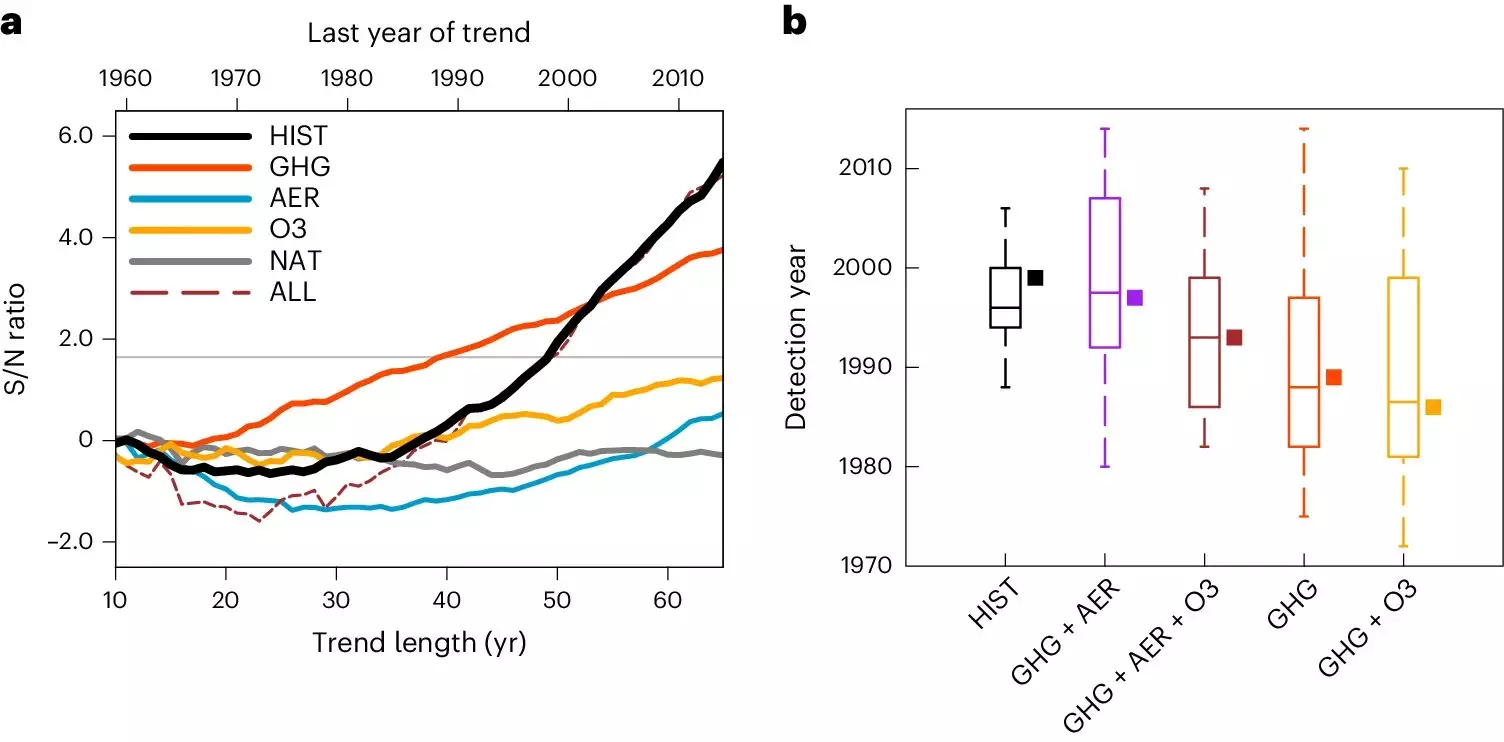Recently, groundbreaking research has revealed a significant human “fingerprint” on climate change, particularly in the alteration of sea surface temperatures (SST) seasonal cycles. The study, led by Benjamin Santer and Jia-Rui Shi from the Woods Hole Oceanographic Institute (WHOI), provides compelling evidence that human activities have had a profound impact on ocean temperature patterns.
The research conducted by Santer and Shi involved analyzing data from various sources, including satellite records and ocean measurements collected by WHOI since 1950. Through detailed examination of sea surface temperatures, the study identified distinct changes in SST seasonal cycle amplitudes, attributing these alterations to human-induced factors such as CO2 emissions.
One of the key implications of this research is the potential impact on marine ecosystems. The increased seasonal temperature variations in ocean waters could have wide-ranging effects on fisheries, nutrient distributions, and overall ecosystem health. Understanding the anthropogenic influence on seasonality is crucial for both scientific and societal reasons.
The study also highlighted the record-high upper ocean heat content in 2023, raising concerns among scientists about the role of oceans in regulating global climate systems. With the ocean absorbing a significant portion of excess heat from global warming, it is essential to recognize the temperature-dependent nature of the ocean’s ability to sequester carbon dioxide.
As human-induced climate change continues to impact ocean temperatures and marine ecosystems, there is a pressing need for decisive action. Understanding the consequences of altering ocean pH levels and disrupting vital carbon sink processes is critical for mitigating the long-term effects of climate change. The scientific community must come together to address these challenges and inform evidence-based policy decisions.
The research conducted by Santer and Shi provides compelling evidence of the human impact on ocean temperatures and climate systems. The findings underscore the urgency of addressing climate change and its consequences on marine ecosystems. By recognizing the significant role of human activities in shaping ocean temperature patterns, we can work towards more sustainable practices and policies to safeguard our planet for future generations.


Leave a Reply